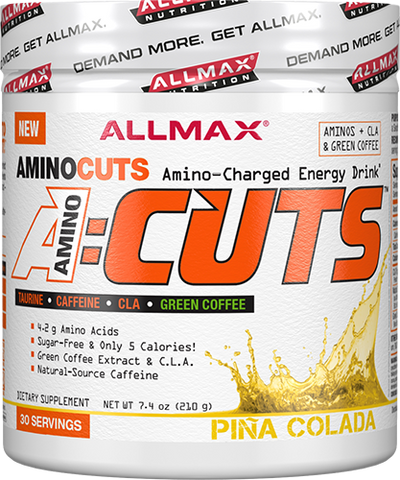The amino acid Arginine was first characterized
in 1886 by the Swiss Chemist Ernst Schulze. Little research was
conducted subsequently, however, since there was widespread belief that
adequate amounts of arginine could be synthesized in the body, which
undoubtedly delayed further research. In the 1930?s, research showed
that arginine deprivation decreased the rate of growth and/or led to
severe metabolic disorders and even death.
In
the last forty years, numerous studies have emphasized the diverse
range of arginine's physiological effects including release of growth
hormone, glucagon and insulin, amino acid detoxification and for the
synthesis of creatine - an important compound for generating ATP, or
"cellular currency." Arginine is a physiological precursor of nitric
oxide, a potent vasodilator. In the mid 80?s the importance of nitric
oxide (NO) as a ubiquitous signaling molecule was highlighted, which
helped explain arginine's diverse effects.
Arginine is beneficial for improving the function of the
cardiovascular system due to its antiatherogenic, antiischaemic and
antithrombic properties, all of which help to prevent the formation of
plaque in the arteries. In diabetes it is also used for reversing the
effects if high vascular glucose concentration. Studies also demonstrate
the benefits of arginine for treating male infertility, interstitial
cystitis and liver and brain injury.
Research
Cardiovascular Disorders
Extensive studies have demonstrated arginine's antiatherogenic,
antiischaemic and antithrombic properties, without which the eventual
consequence is formation of plaque in the arteries, which leads to
compromised endothelial function which in turn leads to reduced
vasodilation. Arginine has been shown to not only prevent further
progression but also even to promote the regression of plaque formation!
An interesting study by Boger and colleagues compared the effects of a
standard cholesterol drug called lovastatin (Mevacor) with the effects
of arginine in cholesterol-fed rabbits. Lovastatin reduced cholesterol
by 32%, but had only a weak effect on the formation of plaque.
Interestingly, arginine had no effect on cholesterol yet completely
blocked the formation of plaque.
The
initiating event in atherosclerotic plaque formation is monocyte
adhesion to the endothelium followed by entry of these monocytces into
the subintimal layer of the blood vessels, their transformation into
macrophage cells followed by their uptake of lipids and eventually fatty
streak/foam cell formation. Arginine is reported to reduce the adhesion
of monocytes to the endothelial cells in coronary patients and in
smokers. Another mechanism through which arginine may be acting is that
NO has potent free radical quenching properties and hence acts as an
antioxidant.
Numerous experimental and clinical studies have demonstrated the
therapeutic potential of high dose arginine for the prevention and
treatment of a broad spectrum of cardiovascular diseases, in preventing
endothelial damage and in the restoration of endothelial function
including arterial hypertension, peripheral vascular disease, angina and
the metabolic syndrome. Arginine has been successfully used for the
treatment of mild to moderate congestive heart failure, with a dose of
12.6g per day demonstrating a beneficial effect.
Diabetes
Diabetes mellitus is a metabolic disorder which strongly
predisposes an individual to cardiovascular disease. Hyperglycemia is
thought to cause diabetic complication via the following mechanism:
formation of reactive oxygen species (ROS), which cause direct
endothelial damage; and increased formation of advanced glycation
end-products (AGEs) which are toxic species that alter the structure and
function of physiological proteins. The net result is an increase in
retinopathy, nephropathy and neuropathy. High blood glucose levels also
reduce NO availability. Arginine, however, can reverse the vascular
effects of high glucose concentration. A small randomized, double blind,
placebo-controlled study demonstrated that 6 grams of arginine improved
exercise capacity in angina patients.
Arginine reduces platelet aggregation and blood viscosity, improves
blood flow and helps repair vascular injury. Arginine is considered a
promising therapeutic agent for the prevention of restenosis and
improving the outcome following heart transplantation and coronary
bypass.
Other Benefits
a. Interstitial cystitis
A dose of 1.5g daily for 6 months in a clinical trial resulted in a
significant decrease in urinary voiding discomfort and diminished
abdominal and vaginal/urethral pain. Urinary frequency was significantly
decreased.
b. Spermatogenesis
Arginine has been used for treating male infertility by
improving spermatogenesis. Since arginine is a precursor of NO, and NO
is a potent vasodilator, it is conceivable that arginine would be of
benefit in erectile dysfunction much like the mechanism of action of
Viagra.
c. Liver and brain injury
Animal studies have reported benefits in acute liver and brain injuries.
Market Trends
Arginine is most commonly used to enhance
exercise capacity, to improve nitric oxide production, in cardiovascular
disorders and for erectile dysfunction.
Domestic orders within Canada over $150 are eligible for FREE shipping! For all other orders an easy, flat rate, shipping fee of $9.99 will apply during checkout.
Please note, we do not ship to PO Boxes. Any orders with a PO Box shipping address are subject to cancellation.
We offer international shipping anywhere in the world. Shipping will be calculated based on shipment weight and size. We do not charge any additional fees for handling or packaging material.





